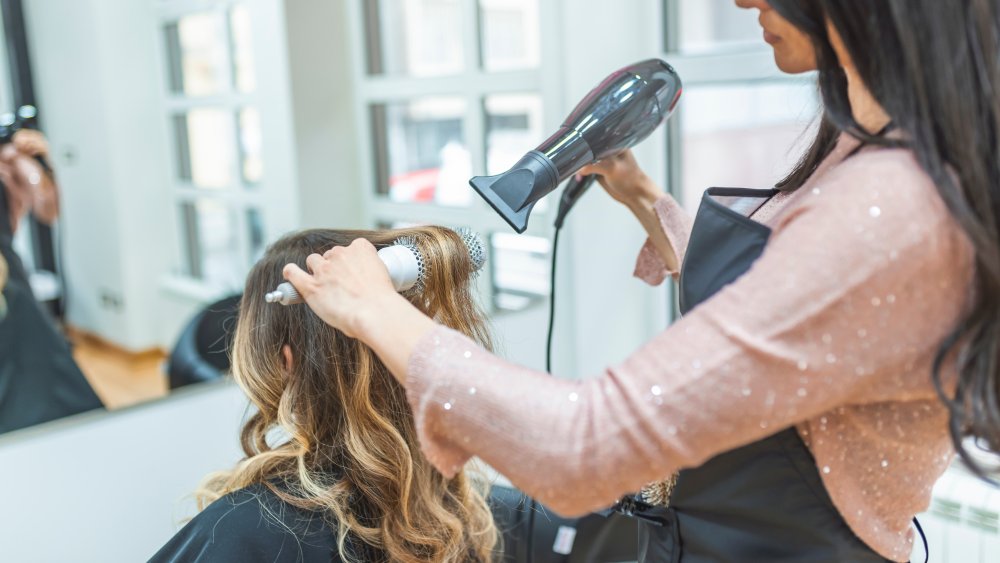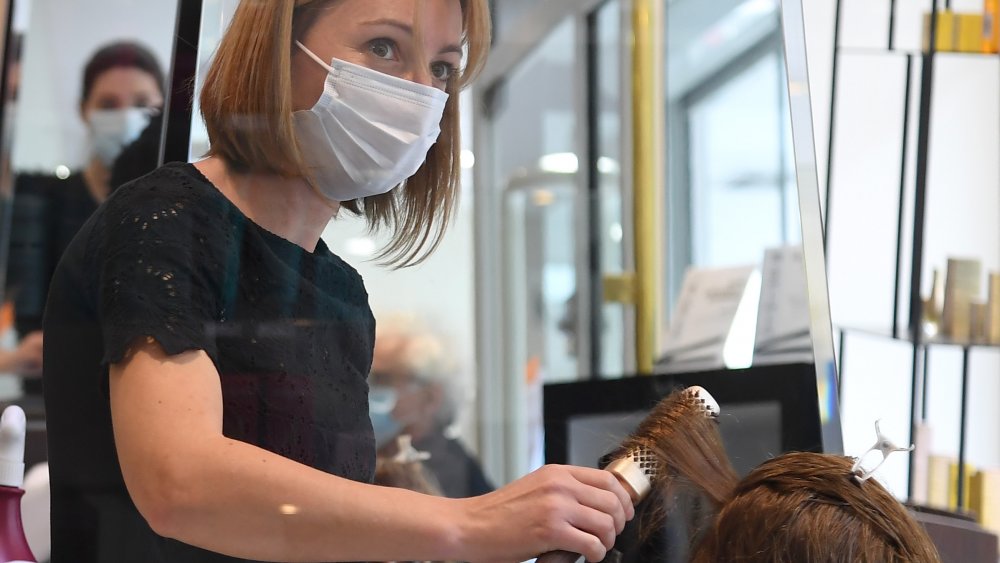The Reason Salons Might Not Offer Blowouts Anymore
Home haircuts might get the job done, but they will never compare to the pampering and skill offered at a salon. Not just a trip for the stylistic expertise, people love getting their hair expertly shampooed and, of course, styled and blown dry. Blowouts have become such a huge trend that one woman reportedly paid $250 a week just for blowout service (via StyleCaster). But times change. During this pandemic, some significant changes have revolved around how hairstylists and beauty professionals are able to operate.
Supercuts is a national chain that provides a great example of timely updates to cosmetology services. The company shares each change in procedure and helps detail how different states are imposing regulations to help protect both worker and customer including increased sanitation, additional social distancing, and the use of masks and personal protective equipment. Some salons will be limiting services and adding additional precautions like face shields (via Today). Since each regional district faces different regulations, many stylists are still left with some confusing guidelines and conflicting advice.
At the center of this confusion is the iconic blowout.
Stylists will work to minimize virus risks at salons
As Connecticut salons prepared to reopen, Governor Ned Lamont announced they'd have to do so without using blowdryers — a guideline which was later rescinded (via Today). Business owners surmise that this may be due to a perceived risk of "blown germs" but aren't entirely sure. Business owner Omar Roth comments, "We feel like there's also a lot of speculation and at the end of the day, they're just trying to figure this all out as we go. As a business we have decided not to do blowouts until we have more information as to why they were initially banned."
While the direct risk of coronavirus contagion via hair dryers is unknown, there is some data to support the idea that blown air may increase virus spread. Healthline shares that hand dryers have been shown to help spread germs around surfaces. It should be noted, though, that hair is different than dirty hands, and heat-setting temperatures are higher than hand dryers, but it's still a caution worth noting.
As with so many things during this confusing time, we are learning as we go. If you are an at-risk group, you may want to consider waiting until more data is available before taking a risk on a blowout or attending in-person services.

